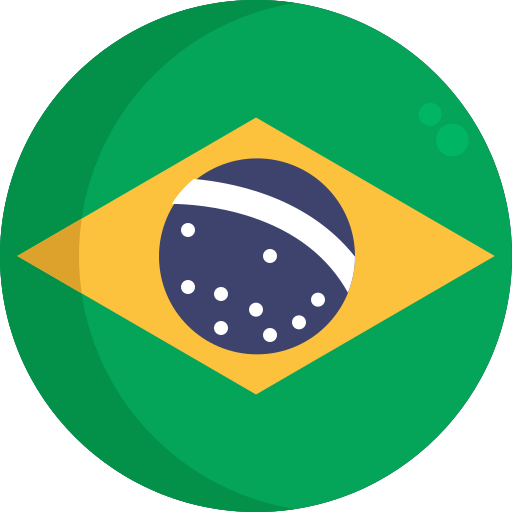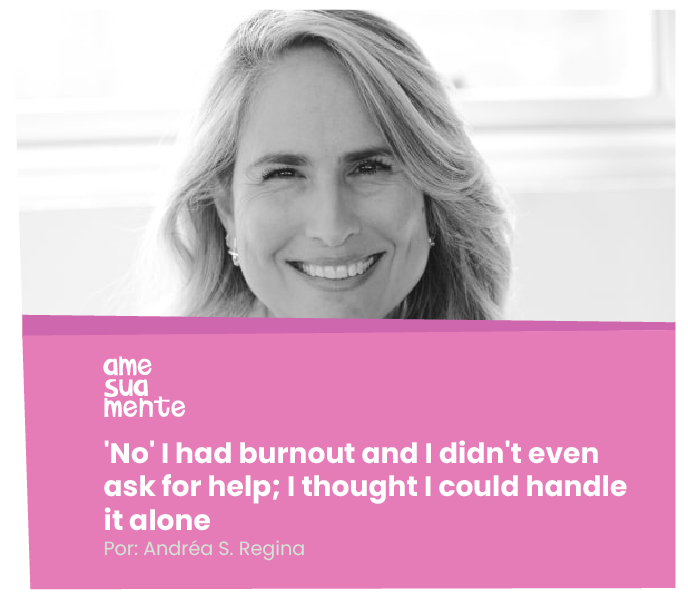
Nexo Jornal – 14.01.2024
Yes, I worked too much. Yes, in one of the most aggressive markets ñ the financial sector. Yes, I have a small son, which limited my sleep at night. Yes, I had a sick husband. But no, I didn’t ask for help, and I thought I could handle everything on my own.
I didn’t have burnout because my mental exhaustion, which occurred at the height of my 35 years, wasn’t attributed exclusively to work. Yes, I worked too much. Yes, in one of the most aggressive markets ñ the financial sector. Yes, I have a small son, which limited my sleep at night. Yes, I had a sick husband. But no, I didn’t ask for help, and I thought I could handle everything on my own.
When the first symptoms appeared, I should have sought the support of specialists – ignorance and my omnipotence made me believe that I would soon be fine, that it was only a matter of time before I felt whole again.
It was a difficult time, a convergence of a series of factors, which culminated in a week-long ìblackout.î Today, in my 50s, I learned (at some expense) that we are responsible for our health, and mainly, for our mental health.
In 2015, mental health finally gained global relevance when the United Nations launched the 2030 Agenda ñ better known as the “17 Sustainable Development Goals” (a global instrument agreed to by more than 170 countries for economic, social, and environmental sustainability) ñ with specific indicators for combating substance abuse, reducing the number of suicides, and promoting health and well-being. A historic milestone in the relevance of the issue, with unprecedented scalability, as the connection be-tween mental health and economic development was made for the first time in history.
In 2016, the World Bank and the World Health Organization launched the campaign, ìOut of the Shadows: Making Mental Health a Global Development Priority,î which highlighted the need for more investment in promoting mental health and expanding access to existing treatments.
Women have always had a more tenuous relationship with mental health. And work overload is identified as one of the main factors.
In 2020, the Covid-19 pandemic, a highly complex and uncertain context, made the topic even more relevant. The effects of social isolation and the fear of death and financial insecurity are all factors that have culminated in a collective illness, impacting generations that we will still see for a long time to come.
Women have always had a more tenuous relationship with mental health. And work overload is singled out as one of the main factors, but this also includes: the low quality of employment, with a predominance of informal work, its temporary nature, the precarious nature of the relationship; the irregular career patterns (time out of the job market to look after children – maternity leave);
and domestic overload, physical and mental exhaustion that leaves women especially vulnerable to psychological suffering. Ingroups of women with a high domestic burden, the number of Common Mental Disorders goes from being present in one out ofevery five women to one out of every two women, according to the Caminhos da Sa ̇de Mental study, conducted by the Veredas Institute in 2020.
Recent studies in Brazil indicate that the highest rate of suicide growth is among women and in the Northeast and North regions, inaddition to a significant incidence among indigenous people. Although men commit more suicides in Brazil, suicide attempts are 2.2 times more frequent among women.
In relation to self-harm, between 2011 and 2018, Brazil had almost 340 thousand notifications. Of this total, 45% of the episodes were observed in young people between 15 and 29 years old, 67% of which were women.
The problem is real, now the topic on the agenda is Safeguarding Human Rights. But what part do we play?
It is up to each of us to get to know ourselves, to understand our limits, and to put the choice of self-care and attention to our mental health on our New Year’s agenda. How? Start by ìputting yourselfî on the agenda. After all, the responsibility for your life choices is yours alone. Prevention is essential.
As Dr. Rodrigo Bressan, psychiatrist, researcher, and founder of the Instituto Ame sua Mente says, “we need to promote a culture of mental health, in which people take responsibility for themselves and recognize that they need to seek help.”
AndrÈa Regina is Executive Director of Instituto Ame Sua Mente. An ESG specialist, she has worked in recent years as a Corporate Sustainability and Diversity & Inclusion Executive for Latin America at multinationals in the financial sector. A graduate of the University of S„o Paulo (USP) with a degree in Education, she specialized in Industrial Marketing and Retail Marketing at FGV and FIA-USP. She completed the Social Responsibility and 3rd Sector course at CEATS-USP, redirecting her career into themes of social and socio-environmental impact almost 20 years ago. She has an MBA in Management from FGV and a specialization in Health Promotion from the USP School of Medicine.








